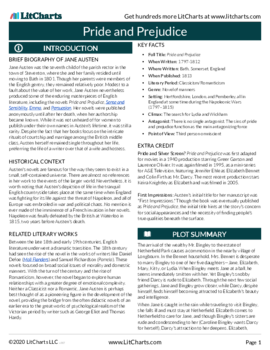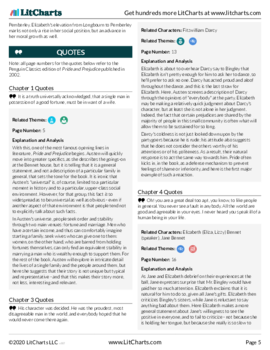- All's Well That Ends Well
- Antony and Cleopatra
- As You Like It
- The Comedy of Errors
- Coriolanus
- Cymbeline
- Hamlet
- Henry IV, Part 1
- Henry IV, Part 2
- Henry V
- Henry VI, Part 1
- Henry VI, Part 2
- Henry VI, Part 3
- Henry VIII
- Julius Caesar
- King John
- King Lear
- Love's Labor's Lost
- A Lover's Complaint
- Macbeth
- Measure for Measure
- The Merchant of Venice
- The Merry Wives of Windsor
- A Midsummer Night's Dream
- Much Ado About Nothing
- Othello
- Pericles
- The Rape of Lucrece
- Richard II
- Richard III
- Romeo and Juliet
- Shakespeare's Sonnets
- The Taming of the Shrew
- The Tempest
- Timon of Athens
- Titus Andronicus
- Troilus and Cressida
- Twelfth Night
- The Two Gentlemen of Verona
- Venus and Adonis
- The Winter's Tale
plus so much more...
-
Repetition
"Eel Tail" is an extremely repetitive poem, as the speaker returns to specific words, phrases, and grammatical constructions again and again throughout. All this repetition makes sense: the speaker insists that it's just about impossible to ever get a good look at the eels, so all "you" can do is keep "looking and looking." The poem keeps circling back on itself, conveying the sense that the eels are continually just out of reach.
For example, the word "sometimes" (twice also followed by "you see") and the phrase "you keep" (followed by "looking" or "finding") pop up at the start of multiple lines:
- "sometimes you see mudfish,"
- "you keep looking and looking for those"
- "sometimes its just a smirk of ripples
- "you keep looking and looking for those"
- "you keep finding those sea-veins still"
- "sometimes you see that whip-thin"
There's repetition within these phrases as well, as with the diacope of the phrase "looking and looking" (a phrase that itself appears twice in the poem). Again, the repetitive phrasing relays just how extensive this "looking" is; it seems to never end, so "you keep" going and going. (The diacope of "sucking and sucking" likewise creates emphasis; the eels' are endlessly "sucking" up the water of the marsh.)
The poem also repeats an entire chunk of lines three times, creating a refrain:
and then as soon as you see them
gone
untranslatable hissed interruptions
unspeakable wide chapped lipsit's the wind again [...] and when it clears
The repetition of these lines emphasizes the slippery nature of the eels: over and over, "you" spot the eels only for them to vanish so quickly that you're not sure you ever saw them in the first place. Time and again, you think "it's the wind" causing ripples along the surface of the water, rustling the reeds, or whooshing past your ears. And "when" the wind "clears," you start the search anew.
At the very end of the poem, however, the speaker varies the refrain:
- First, "and then as soon as you see them" turns into "and then as soon as you see her." The speaker has zoomed in on one specific eel here, making the image more precise by using the pronoun "her." You're not focusing on a mass of anonymous thems, but one specific creature.
- Next, the speaker repeats the previous line almost word for word: "and then as soon as you say so." This parallelism ramps up the drama; there's now an extra beat between the "and then" part of the refrain and the "gone" that readers have come to expect. You're so close to the eel that it seems, for a moment, like you might actually get a hold of her; alas, she evades your grasp once more.

|
PDF downloads of all 3053 of our lit guides, poetry guides, Shakescleare translations, and literary terms.
PDF downloads of all 1909 LitCharts literature guides, and of every new one we publish.
Learn more
|

|
Explanations for every quote we cover.
Detailed quotes explanations (and citation info) for every important quote on the site.
Learn more
|

|
Instant PDF downloads of 136 literary devices and terms.
Definitions and examples for 136 literary devices and terms. Instant PDF downloads.
Learn more
|

|
Compare and contrast related themes.
Compare and contrast Related Themes across different books.
Learn more
|

|
Teacher Editions for all 1909 titles we cover.
LitCharts Teacher Editions for every title we cover.
Learn more
|

|
PDFs of modern translations of every Shakespeare play and poem.
PDFs of modern translations of every Shakespeare play and poem.
Learn more
|

|
Advanced search across our collection.
Advanced Search. Find themes, quotes, symbols, and characters across our collection.
Learn more
|

|
Line-by-line explanations, plus analysis of poetic devices for lyric poems we cover.
Line-by-line explanations, plus analysis of poetic devices for every lyric poem we cover.
Learn more
|


For every lyric poem we cover.



Literature Guide PDFs
LitCharts PDFs for every book you'll read this year.



Quotes Explanations
For all 42,208 quotes we cover.





Teacher Editions
Time saved for teachers.
For every book we cover.
Common Core-aligned



PDFs of modern translations of every one of Shakespeare's 37 plays, 154 sonnets, and 3 longer poems.


Plus a quick-reference PDF with concise definitions of all 136 terms in one place.





















